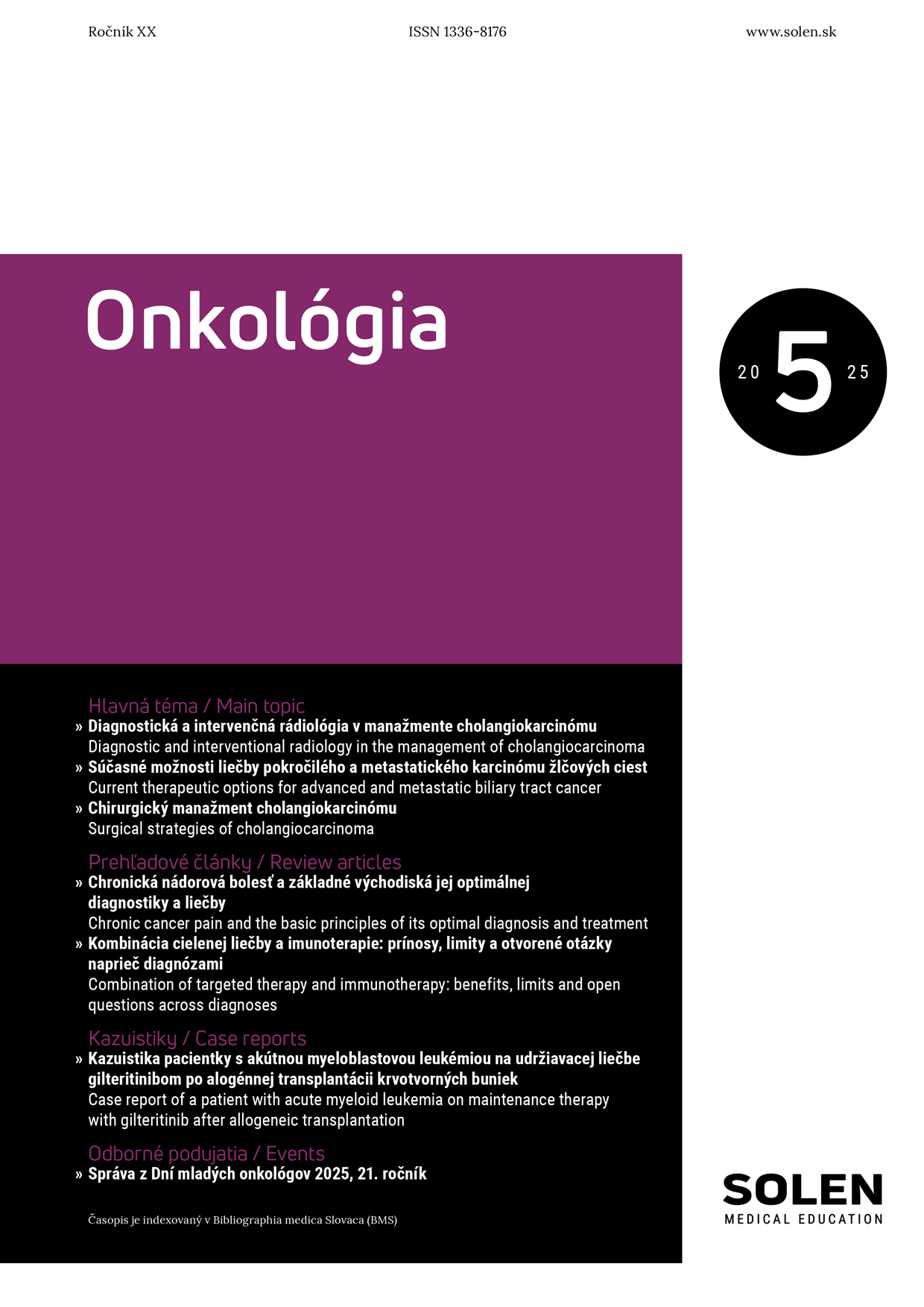Onkológia 4/2022
Lutetium-177-PSMA in therapy of metastatic prostate cancer
Despite advances in the care of patients with metastatic castration-resistant prostate cancer (mCRPC), only 30% of them survive five years. Therefore, newer targeted therapeutic approaches are still being sought to prolong the survival of patients with mCRPC. More than 80% of prostate cancers overexpress prostate specific membrane antigen (PSMA), a transmembrane protein that is used as a molecular target for both imaging and therapy. In this work we focus on newer radioligand treatment, where a ligand, an inhibitor of PSMA protein is radiolabeled with mixed beta-gamma emitter - radioactive lutetium (177Lu) - 177Lu-PSMA. It is a small molecule that binds to metastatic prostate cancer cells that overexpress PSMA, unlike most normal tissues, and irradiates them to cause damage of the irradiated tumor cells. Treatment with 177Lu-PSMA yielded promising results in a recent prospective randomized open-label international study, VISION. This is the first study to demonstrate a significant improvement of overall survival in patients with progressive mCRPC treated with 177Lu-PSMA-617 and pretreated with at least one of the second-generation hormone therapy - androgen receptor targeted agents (ARTA) and chemotherapy. Currently, 177Lu- PSMA is indicated for the treatment of men with mCRPC previously treated with docetaxel and concomitantly with abiraterone or enzalutamide.
Keywords: prostate cancer, metastatic castration-resistant prostate cancer, prostate specific membrane antigen, radioligand therapy, lutetium-177-PSMA

















